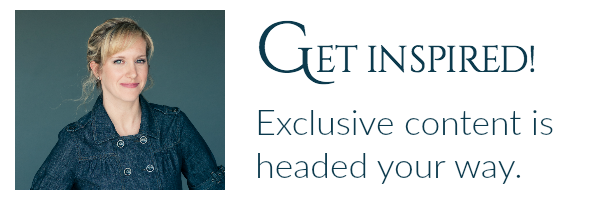by Kelli Stuart | Faith, Family, Like a River From Its Course, Ukraine
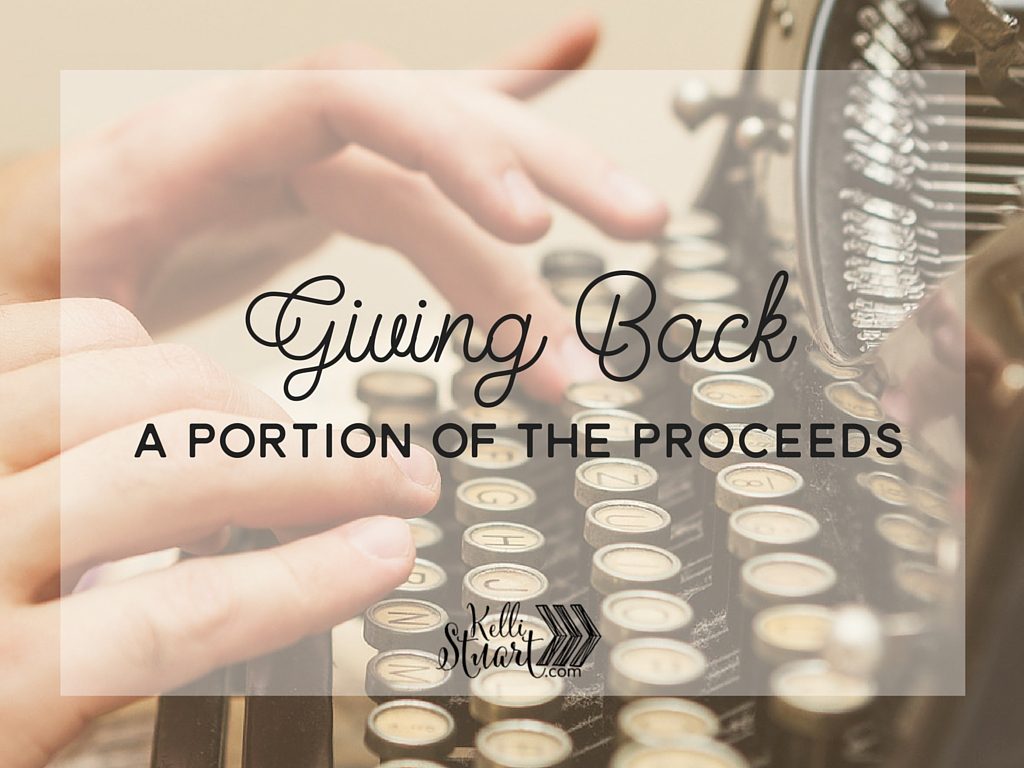
It’s no secret that orphan care is near and dear to my heart. It’s something that I care about deeply. Some women long to have children naturally, and cannot, and adoption is the way they grow their families.
I am, admittedly, quite the opposite. I longed to adopt the way that most women longed to have children naturally, and for whatever reason, that door has been closed to me. At least up until this point. The future is always a mystery, though…
After our Russian adoption was terminated, I poured myself into finishing my novel. All of the kids were in school at that point, so I’d drop Landon off at preschool, then drive to the Whole Foods around the corner and have ridiculously healthy food while I tapped away at my computer.
I shed big, giant alligator tears throughout the entire process. I called my husband on more than one occasion sobbing from the parking lot, my heart so utterly torn over this fractured dream. I felt lost and confused.
I was a mess.
Writing Like a River From Its Course* was part of my healing. Through the rhythmic tapping of my fingers, I released some of the inner angst that plagued me. As I dove head first into the heartache of my characters, I was able to dissect my own broken heart.
I grieved as I wrote, and in the end this novel kept the grief from swallowing me whole.
As I prepared to launch the book out into the world, I wanted to find some way to give back to the country that had given so much to me. How could I gift these stories back to Ukraine?
I bathed this in prayer, and the answer came swiftly in the form of a ministry called World Hope Canada.
I first stumbled across World Hope Canada when Lee and I were debating whether or not we should continue to pursue adoption, or accept our family as it was. As I researched, I found Hope House Ukraine, a division of World Hope Canada that ministers directly to young women who have aged out of the orphanage.
The story is long and twisty, and it involves more of me in tears so I’ll spare you all the details, but to cut to the chase, I have fallen in love with the work of this ministry.
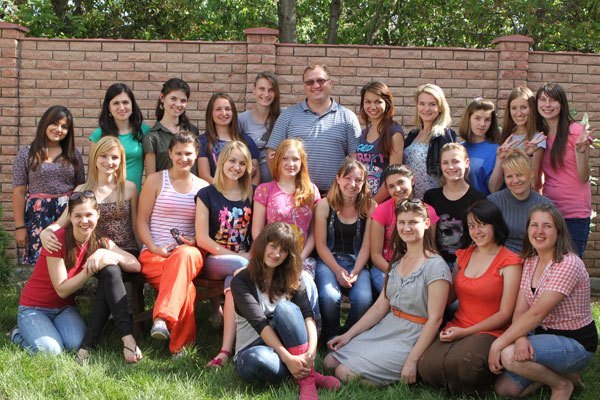
Image from Hope House Ukraine
Girls coming out of institutional homes are some of the most vulnerable in the world. They are often very young (many are aged 16-17), under-educated, naive, and they’ve spent much of their life without any direct guidance or supervision.
These young women are highly susceptible to human trafficking, substance abuse, and pregnancy, which only perpetuates a vicious cycle.
Hope House Ukraine is standing in the gap.
Hope House is a place where girls can live after leaving the children’s home. They are given a roof over their heads and tutoring so that they can pass the exams to get into trade schools. They’re taught life skills like how to maintain a home, how to garden and cook, how to operate inside a family, to live under authority, and to take responsibility for their futures.
There are now two fully operational homes in Ukraine, each of which houses beautiful girls who just need to be reminded that they have worth and value in this world.
From the World Hope Canada website: “Our vision for Hope House is to be a loving and supportive home where vulnerable girls can learn family and life skills, and receive an education so they can live successful, independent lives that are honouring to the Lord.”
As I bring Like a River From Its Course to the world, I want to give back to the country that gifted me these stories in the first place. I have committed up front to financially supporting Hope House Ukraine out of the proceeds that come not only from this novel, but from the books to come.
Specifically, I have chosen to sponsor a young girl named Masha in honor of the woman who inspired this book in the first place.
I hope that you will take a little time to look into Hope House and marvel at the work they’re doing in Ukraine. And if you would like to join me in partnering with this ministry, please let me know and I’ll help connect you to the right people.
In the meantime, please know that every time you purchase one of my books you are helping young women in Ukraine know and see their value. Every time you tell someone else about the book, you’re taking part in this amazing ministry.
Thank you for partnering with me in this way!
by Kelli Stuart | Like a River From Its Course, Novel, Ukraine, veteran's stories
We sat around a long table inside a very small room. It was hot and loud, all the sounds and smells mixing together in a cornucopia that threw my senses into overload.
They’d made pizza for me, because I’m American and they felt pizza would be a comforting reminder of home.
They weren’t wrong.
I’d been invited to this private meeting because I’d shown such an interest in Maria’s story. I’d peppered her granddaughter, Alyona, with so many questions that she finally offered to bring me to her grandmother so I could ask my questions in person.
As soon as I met Maria, I fell instantly in love, and it wasn’t hard to see why. She was a small woman, her bright silver hair pulled back into a loose bun. Her blue eyes sparkled when she spoke, and the lines that crinkled her face revealed years of tenderness and laughter.
Her family called her Baba Mysa, an affectionate term combining the tender form of “grandma” with a word that translates “little fly.” When Baba Mysa spoke, the room got quiet. We wanted to hear what she had to say, wanted to soak up her grace and wisdom.
As I wrote my story, I knew I wanted to tell Maria’s story, but I also wanted to honor the Maria that I knew – the grandmother who exuded warmth and strength. I wanted readers to know both versions of the same woman.
The character of Maria Ivanovna is loosely based on my Maria’s story of survival during those dark years in the war. But the character of Baba Mysa is based upon the older, wiser Maria who gifted her story to me.
And I fell madly in love with this character.
Baba Mysa’s background and story is entirely fictional, but her mannerisms, humor, and strength are not. Baba Mysa exudes dignity, hope and survival. I adored writing this character because through her I was able to honor the woman who endured indescribable hardships and refused to dwell on them.
Today, I’m sharing a brief excerpt from my upcoming novel, Like a River From Its Course. In this section, Baba Mysa is sharing her story with Luda, encouraging her not to get wrapped up in the pain of the past, but to dwell in the beauty of the present.
For more information on the book, visit the book page where you’ll find more links to some of the history that inspired these stories, as well as Pinterest-worthy images, and links where you can preorder your copy!
Be blessed, friends.
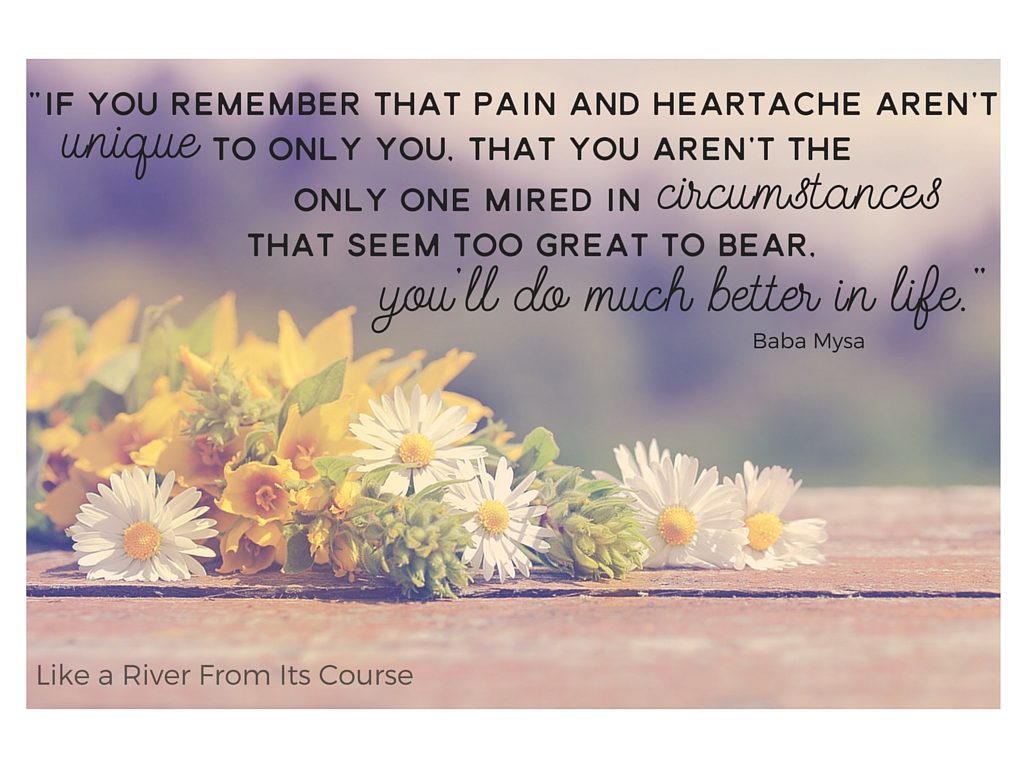
Like a River From Its Course: An Excerpt – Baba Mysa
Baba rocks slowly and rhythmically back and forth in her rocking chair, her hands moving in perfect rhythm. The yarn begins to take shape, a perfect hat for Sasha’s tiny head.
“I want to tell you a story, Luda,” she says. Her voice is soft and warm. I sigh as I melt back into my chair nodding my head in concession.
“I was born a long time ago, deep in the heart of Ukraine. My father was a farmer, and my mother was his strong and doting wife. I grew up among the rows of wheat and vegetables that my father grew.”
Setting her work in her lap, Baba Mysa leans back and a serene look overcomes her face.
“I can still smell the scent of the cherry trees that surrounded our small country house. I feel the cool air of fall and remember every bit of peace as I walked along behind my father through the rows of potatoes. Everything about that time was simple and sweet.”
She pauses, and I look at her impatiently. I enjoy hearing a bit about her childhood, but I don’t understand what she’s trying to communicate.
“When I was ten years old, my father took me into the fields to harvest the potatoes. For hours, we pulled plants from the ground and filled baskets, which we lined up in a long row at the edge of our field. My parents would clean the potatoes later in the day and sell most of them in the local market. At least, that’s what they did every year before this one.”
Baba Mysa’s voice trails off, and I study her face. Her eyes are bright and clear as she stares hard at the wall, the memory playing out before her on an invisible stage.
“On this day, as father and I neared the last row, he told me a joke. I don’t remember what the joke was, but I wish I did, because those were the last words he ever spoke to me.”
My eyes focus in tight as I absorb the shock of her story. Her eyes remain still on the wall, wide and pained.
“As I laughed at his silly words, a man on a large horse rode quickly up to us. He shouted something about danger coming and told us to run. My father told him to take me, and the man scooped me up and fled with me. My last vision of my father is the sight of him standing in the fields, covered in dirt, his arm up in a solitary wave good-bye. I never saw him again.”
It’s quiet for some time as I process Baba Mysa’s story. She wipes her eyes several times, and I don’t speak in order to give her time and space. After a few moments, I finally work up the courage to say something.
“I’m so sorry, Baba,” I say quietly. “I’m so sorry you had to go through that terrible ordeal. But . . .” I pause, unsure of how to proceed without sounding harsh. “I’m just not sure I understand what that story has to do with me,” I say, and then I cringe. The words sound so selfish coming out of my mouth, and I immediately regret them.
Baba Mysa turns her head and studies me closely. She nods in approval at my acknowledgement of, and reaction to, the selfishness in my statement and she waits a beat before responding.
“It has nothing to do with you, child,” she says firmly. “But you can learn from it.” I nod and wait for her to continue, figuring it’s best to remain quiet at this point.
Baba Mysa sighs, and her fingers begin moving in and out of the yarn on her lap once again. “Life is full of heartache and hardship,” she says. “Very rarely will life make sense, and it will almost never seem fair. But if you remember that pain and heartache aren’t unique to only you, that you’re not the only one mired in circumstances that seem too great to bear, you’ll do much better in life.”
©Kelli Stuart
by Kelli Stuart | Like a River From Its Course, Novel, publishing, Ukraine
When I first visited Kiev, Ukraine, I had no idea the magnitude of what they suffered during World War II. As a teenager, I knew very little of the impact of those dark years beyond my borders. Raised with the many stories of our own troops fight for freedom, it never really occurred to me that other countries were impacted far more greatly.
We ambled up a sidewalk one chilly afternoon in March, following our translator, a woman who would later take me into her home for a time and let me call her friend. We stepped up to the monument commemorating the fallen and waited, our breath making small puffs in the cold air.
“This is the site where everything changed for my great-grandfather,” Alyona told us. “In this place, he saw things that you and I cannot even imagine. He never really spoke of that day to us, but my grandmother told me that he was never the same when he returned home.”
Alyona’s grandmother, Maria Ivanovna, would later give me the gift of her story. She trusted me with a small piece of her history, and in so doing, she exploded the borders of the world for me.
Maria’s father, Ivan, was mistaken for a Jew on September 29, 1941, and herded into line with thousands of other men, women, and children, pushed to the outskirts of town, and forced to stand at the edge of the ravine at Babi Yar. By the end of the day on September 30, 33,771 Jews had been brutally slaughtered, bodies piled high inside the gulf the split the land.
Ivan survived.
Just before the gun fired, he collapsed into the ditch where he lay for hours as bodies buried him alive. Under the veil of night, he crawled out.
I will never understand the horror of those days, but I will forever admire the strength and dignity of the men and women who walked through them. In my upcoming novel, Like a River From Its Course, I base many of the characters off the stories of the men and women I met in my years of research.
I pray I’ve honored them well.
In the next couple of weeks, I will be sharing a few excerpts from the book with you, along with some background on how these stories came to be. Today, I share an excerpt from the book in which the character, Ivan Kyrilovich, survives the killing ditch of Babi Yar.
For more information on the book, visit the book page where you’ll find more links to some of the history that inspired these stories, as well as Pinterest-worthy images, and links where you can preorder your copy!
Be blessed, friends.
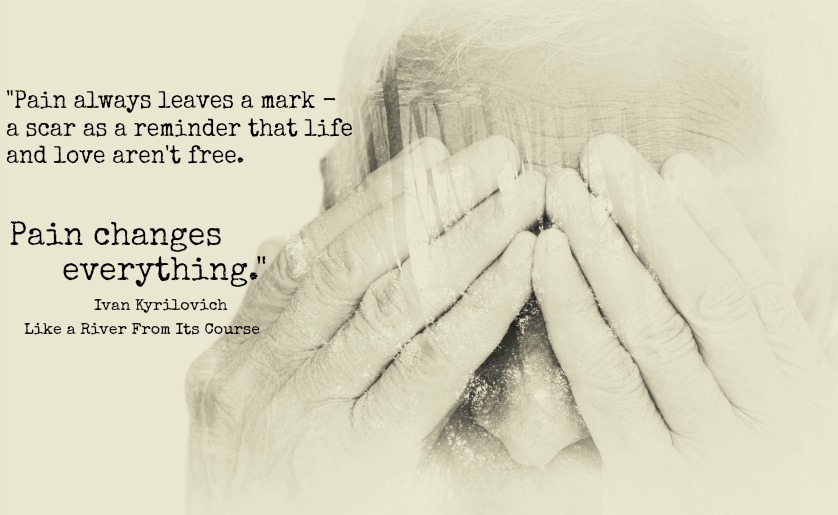
Like a River from Its Course: An excerpt
Ivan Kyrilovich
“Entering the killing zone is more horrifying than I imagined. Marching in a single-file line, our dignity stripped bare, we slowly wind our way up the small incline to the top of the death ditch.
I try not to look at them, the men and women below, their limbs all tangled in a mass of grief and horror. But the image is too great, so my eyes slowly lower, and when I finally see, my lungs constrict.
The bodies—all intertwined and twisted, thin arms and legs woven in and out in a pattern of heartache—they are the worms I see in my dream.
The sounds around me separate from one another. I hear every movement: the crunch of dying grass beneath trembling feet; the quiet sobs of those resigned to fate; my own hollow breathing as I fight suffocation; Klara whispering her daughter’s name over and over like a lifeline.
“Polina. Polina. Polina.”
I hear the click of German guns as many of them reload, the clanking sound of metal entering chambers. The easygoing banter of the soldiers across the ditch, as if today were just another day at a menial job. All of the sounds reverberate through my mind.
It isn’t just the sounds that magnify. I’m keenly aware of everything. The way the sunlight dapples through the trees, casting brilliant shapes and shadows across the open fields. The warmth of this Baba Leta day on my exposed flesh, fighting against the inner chill that leaves me raw.
I watch a black bird drift through the sky, his wings spread in freedom, gliding through the air without fear. He doesn’t flap his wings, nor does he fight the current of the breeze. He catches it and rises suddenly, sus- pended for a brief moment before leaning to the side and riding the wind to a nearby branch.
All of these things pass through me in an instant, and then it’s over. A German command brings the soldiers forward, their dusty caps set high on their foreheads. It is then that I see him.
He walks briskly down the line to the man stationed across from me. It’s the steely-eyed killer who pushed me into line, the same boy who killed the woman in the fur coat. Leaning forward, he whispers in his comrade’s ear. The soldier glances in my direction, shrugs his shoulders, and steps back, letting the boy with fire in his eyes take his place. I feel the heat, and in my final moments grow emblazoned.
Looking back at him from across the killing ditch, I stare straight into his eyes, feeling a surge of hatred that surprises me.
Ready!
The first command rings out, bursting through the air with a measure of indifference.
Set!
“Get ready, Polina,” I whisper as the Germans raise their guns. Though we’re separated by a ditch, I look directly into the barrel before me. It’s black and cavernous and threatens to swallow me whole. I taste metal, and my ears ring as I await the final command.
Aim!
I wait a beat, then yelp, “Now!” I grab Polina’s hand and crumple just as the shots burst through the air.”
©Kelli Stuart, 2016
[Tweet “Like a River From Its Course, the debut novel by @kellistuart, is now available for preorder! http://amzn.to/1WO5HPB #RiverNovel”]




